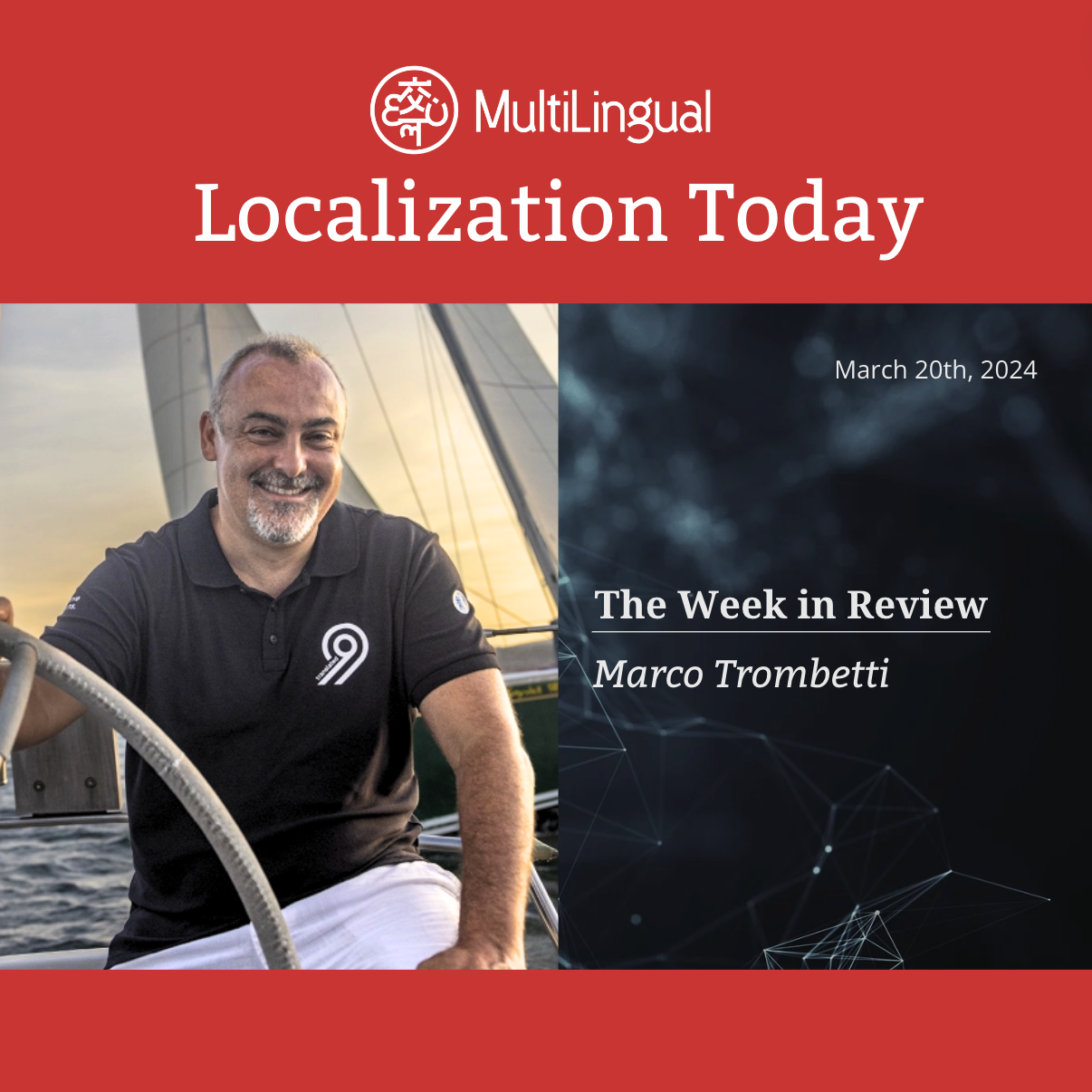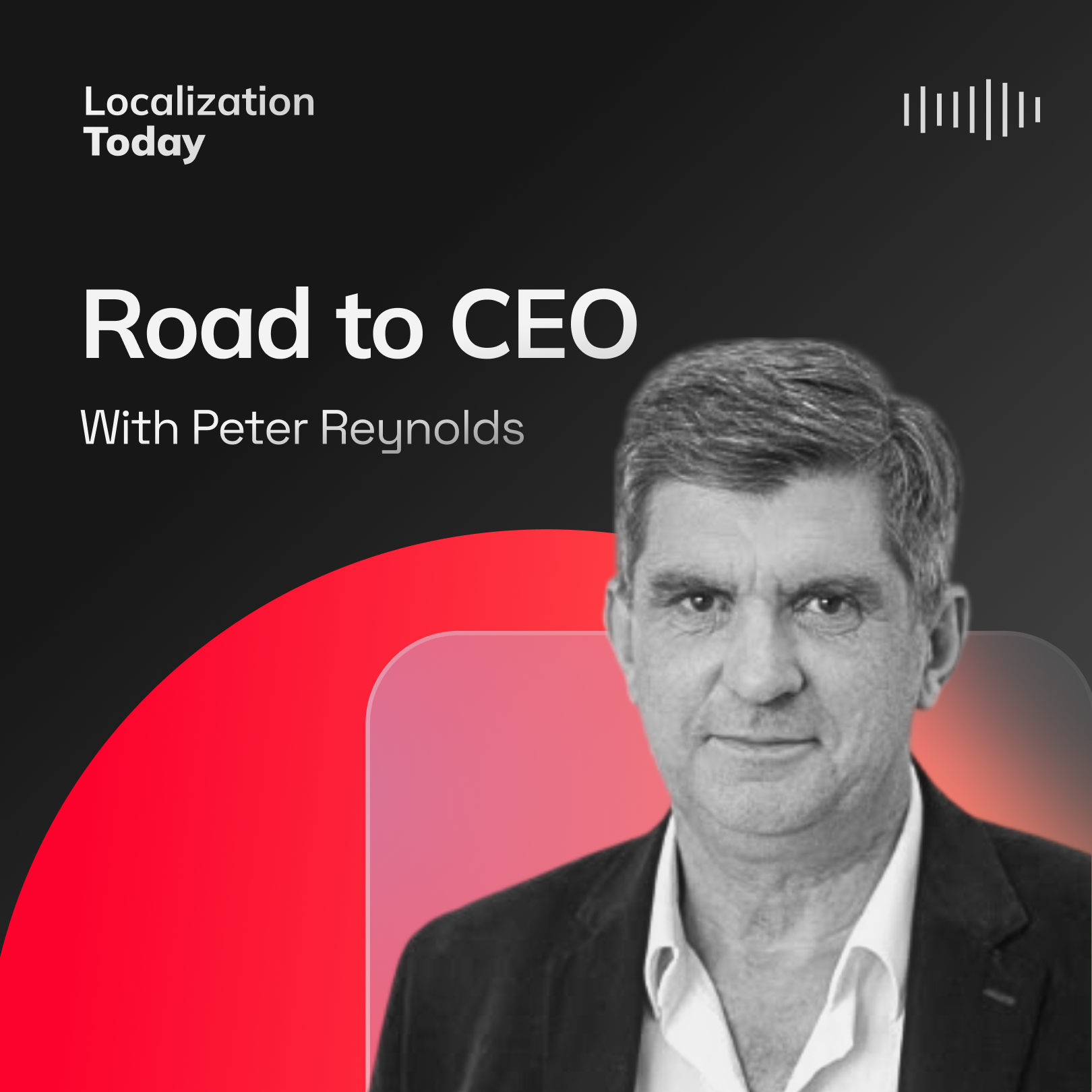Episode Transcript
[00:00:00] A two sided industry. Where do we go from here? By Brigitte Hylack are we one or are we two?
[00:00:08] Are we even we anymore? Or is one side consuming the other while simultaneously relying on it for survival? So often I find myself on a dividing line. It's as if I'm sitting on a bike and each wheel wants to go in a different direction.
[00:00:24] Such a big part of me is torn. In the first half of my career, I was a classically trained certified interpreter, translator, and language service provider owner. Now, in the second half, I work as a language technology and diversity equity and inclusion consultant. My connections with colleagues on both sides of the industry, if we can even call it one industry, are deep and true. I attend conferences on both sides, get paid to speak on both sides, serve on government boards on both sides, and advocate and consult on both sides. When I post or speak about a real wow moment in tech, my language colleagues often disappear. When I talk about things that require human expertise, tech colleagues go mute. Those of us monitoring both camps and sitting in the lookout tower above the foray have a unique perspective. Participating in committees and councils on both sides of this fence is an eye opening and often conflicting experience.
[00:01:27] In a recent interpretation professional advisory committee meeting, a veteran interpreter and I stumbled upon a tricky how will artificial intelligence replace a court interpreter in consecutive interpreting settings when part of what linguists do in that capacity is to manage the flow of the proceeding itself, noting errors, managing crosstalk, reviewing forms, and redirecting individuals, including the judge if needed. While I am a huge fan of AI's current level of execution in low stakes, simultaneous settings, this was an excellent, completely valid point I hadn't considered when I envisioned AI interpreter systems in courts. At another meeting involving telemedicine interpreting systems in hospitals, a doctor told the story of a patient in critical condition who balked at using the technology and insisted on having a real person interpret. Unfortunately, that patient didnt have time to waste, and as a speaker of a rare language, their human interpreter got there too late. This is why we need both sides communicating to improve these systems and to advance a centuries old profession originally dominated by human skill but now tremendously enhanced by technology.
[00:02:41] Sometimes, at the end of the day, I ponder wistfully upon the craft and art of translation and interpreting alongside the productivity and humbling progress of language technology. And I wonder why such an expansive chasm exists between these camps. Just as soon as I wonder, though I already know, the speed of progress, return on investment, ROI, resistance to change, high priced technology, CEO's and big jets. These jets are often well deserved and dutifully earned. And yet the people who ultimately fuel those jet rides work out of small desks tucked into bedroom corners or efficiency apartments. Moreover, these professionals, who may have been modestly compensated but who nevertheless delivered their work in hopes of future collaboration, have been turned into data repositories, in many cases without their consent, that threatened to make them increasingly less valuable. Okay, it's business.
[00:03:38] We know these things happen, and what good businessperson would have it any other way? But the issue isn't business, or even money.
[00:03:46] The issue is trust.
[00:03:48] Those translators and interpreters at the bottom of the food chain serve with a whole lot of faith. Each one of them could tell countless stories about the job they accepted here or there for half price or even free, on the promise of a good, consistent client who would come back regularly and keep them going. More often than not, those potential good clients didn't keep their word. The linguist was taken advantage of, chewed up, spit out, and replaced by someone or something cheaper, only to try again when another such client appeared in their inbox. There came a point in my early career as a linguist and manager of an LSP, committed to paying linguists well when I could smoke the impostors a mile away, the ones who promised ongoing collaboration, if only I could help them out of this one particular jam. Then wed progress swiftly to the business version of marital bliss.
[00:04:40] I fell for it for years, until finally I didnt. It was kind of like being infatuated with a good person, only to find text messages on their phone proving just the opposite. You finally wake up, smell the coffee, pack your stuff, and leave.
[00:04:56] Or in this case, you change the locks and kick them out. You just dont take it anymore.
[00:05:03] Right about the time I changed my own locks, our industry was progressing by leaps and bounds, not unlike today. Arguments began flying in the early two thousands about whether computers could or would replace humans. The same sorts of bipolar, dichotomous arguments seen in industry, media, and on LinkedIn today spread like wildfire.
[00:05:24] Linguists insisted it was impossible. Tech companies and natural language processing experts knew it was not. To me, the disconnect was crystal clear. Tech companies were not slowing down as they shouldnt have. They were not hiding their efforts, and they were not lying.
[00:05:43] They were simply doing their job. At some point, I believe, the tech side of the industry stopped, addressing an increasingly resistant and adamant community of language professionals who simply didnt like the message they were hearing. It was good news, but all they could hear was change.
[00:06:00] Not all linguists took this position.
[00:06:03] Some of us saw the signs jumped off the analog processes ship and became early adopters of language industry technology, tools that at least in my case made our hearts sing. The productivity and enhancements offered by these tools and systems were undeniable and I wanted more. My clients didnt care what I was doing or how. And so pricing remained pretty steady for years. It was an advantage I was able to leverage into a single income for my growing family.
[00:06:31] Fast forward to now and the advancements are different, but the narrative is the same. The loudest voices are my beloved language industry colleagues. Yes you. But I do love you. And I am you who dont want to train or adapt to the latest technologies to prove, if nothing else, what true linguists they really are. So this is my adapt, adopt or pivot. Look at the whole thing the same way the CEO of every successful agency you are working for does. How productive can you be? How much money can you make in the next one, two, or three years? Capitalizing on the tools everyone is making to help your bosses capitalize on you. Its not rocket science, its good business.
[00:07:16] And in case she never took that business 101 course, how we feel about it doesn't matter. It's not family dynamics. It's how you feed that family. Whether you can afford a house and when you will retire. Trados isn't just for big kids anymore. In Tento, smartling and lilt are also out there. BWX and smartcap may or may not be a fit for you. Have you done your homework? When was the last time you compared tools, functionalities, and pricing? When was the last time you read an industry research study or this magazine cover to cover? Have you ever dared to watch a demo of an AI assisted tool like hey Gen or Lingo pal had the guts and the humility to admit it's impressive and then followed up with a reshuffled business plan. These technologies are not your enemies, and they don't even have to be your competitors. They can be tools in your own arsenal. Many of you are expert communicators with impeccable intuition and the ability to build bridges between understanding and meaning. And yet somehow on this one there is a huge disconnect. Linguists, you need high caliber tech to enhance your processes and build what should be multiples of ROI into your annual projected budget. Tech folks, you need trained, high quality linguists to execute at maximum capacity. And if you dont engage with organizations like the american translators association, whose guidance many government agencies still abide by, your bottom line may very well be affected to your detriment.
[00:08:49] Yes, these are uncertain times.
[00:08:52] The economy is running on overdrive, the speed of change is dizzying, and there seems to be no real long term safe place for many of us. But we can all go back to the drawing board, reevaluate, regroup, renew, rebrand, and resurface. Or we can quit. Youre not alone. And this industryboth sides of it are not the only ones in this boat. The only professionals who currently seem to be somewhat exempt from the uncertainty are true tradespeople, car mechanics, plumbers, electricians, niche service experts, beauticians, barbers, grass fed cattle ranchers, medical professionals, doctors, nurses, surgeons and hospitality workers, hoteliers, chefs, florists.
[00:09:37] A lot of these people are looking around and raising their prices.
[00:09:42] Why?
[00:09:43] Because they can.
[00:09:45] I would too. Our industry can be described as Janus faced, having two sharply contrasting aspects in reference to the two faced roman deity Janus.
[00:09:56] Interestingly, Janus was known as the God of doors, transitions, and new beginnings.
[00:10:02] No wonder the month of January, the start of every new year, is named after him. Maybe its time for our industry industries to kiss, make up and start anew. I think the first move will need to be made by the language professionals who want to stay in the game.
[00:10:19] This article was written by Brigitte Hylack. She uses her experience as a nationally certified linguist and multilingual communications director to help clients find the tools that balance efficiency and cost with a human touch. Originally published in multilingual magazine, issue 228, May 20, 2024.


